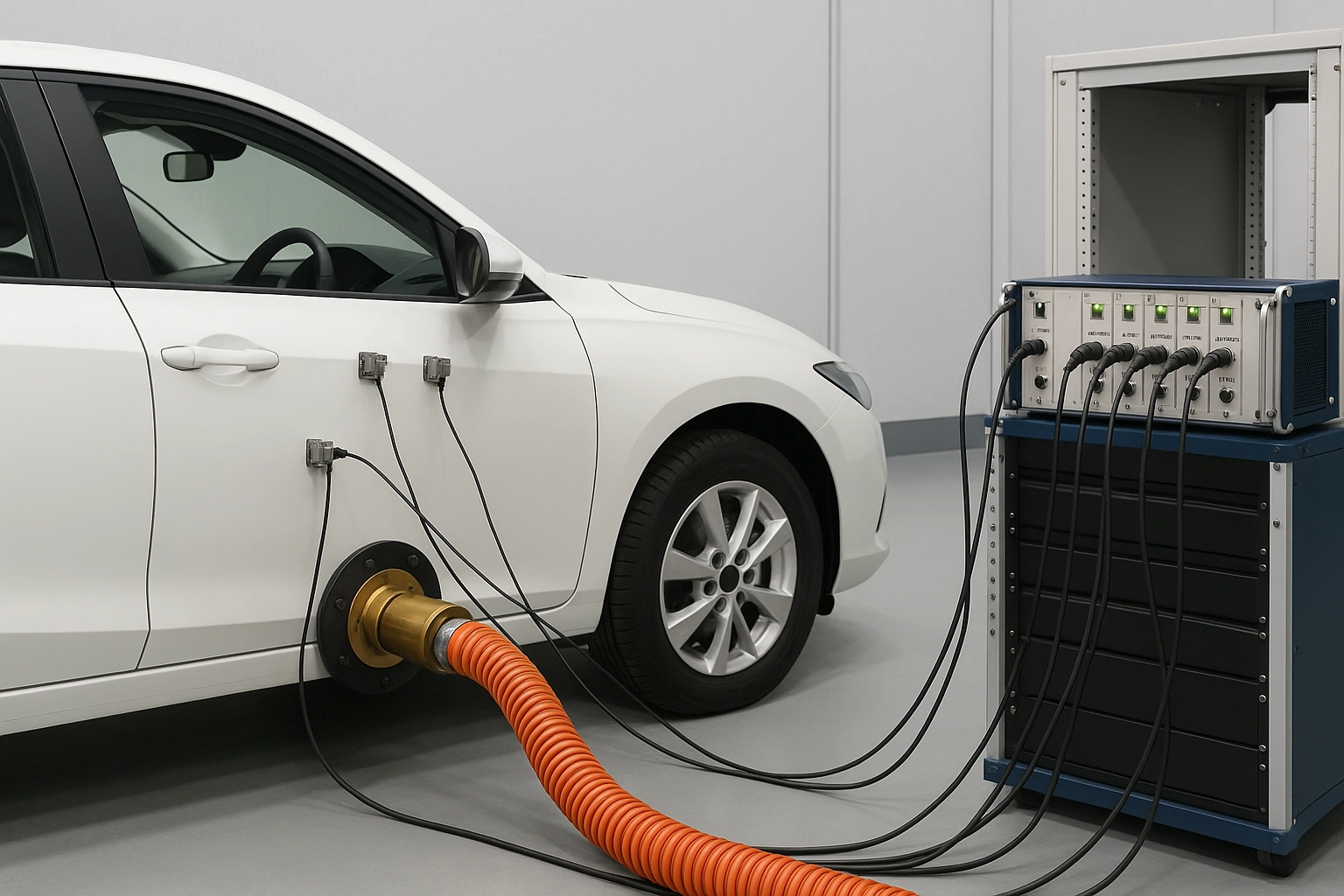GB 1495 Motor Vehicle Accelerating Noise Measurement Test
The GB 1495 Motor Vehicle Accelerating Noise Measurement Test is a crucial procedure that ensures vehicles meet China’s national standards for noise emission during acceleration. This test is essential in the automotive testing sector, particularly important for quality assurance and compliance with regulatory requirements.
This standard specifies the measurement methods used to evaluate the sound pressure levels emitted by motor vehicles while accelerating on a test track. The test aims to assess the vehicle's performance under specified conditions that simulate real-world driving scenarios. Compliance with GB 1495 is mandatory for all passenger cars and light-duty trucks sold in China, making it an integral part of the regulatory framework.
The test setup includes a sound pressure level meter, a data logger, and a calibrated microphone placed at specific locations around the vehicle to capture noise emissions accurately. The vehicle must be driven from a stationary position up to a specified speed while maintaining a steady acceleration rate. The noise levels are recorded and analyzed using international standards such as ISO 9612:1995, which provides guidelines for road traffic noise measurement.
The test procedure ensures that vehicles meet the prescribed noise limits set by GB 1495, contributing to a safer and more comfortable driving environment. The data collected during this test is used to identify areas where improvements can be made in the design and manufacturing process of vehicles. By adhering to these standards, automakers ensure they are not only compliant with regulations but also delivering products that meet consumer expectations.
The GB 1495 test plays a vital role in the broader context of automotive testing by focusing on one specific aspect: noise control during acceleration. This test is particularly relevant for R&D engineers and quality managers who need to ensure that their vehicles perform within acceptable limits, thus enhancing both safety and comfort.
It is important to note that this test is not just about meeting regulatory requirements but also about improving the overall driving experience by reducing noise pollution. By adhering to GB 1495, automakers contribute to a cleaner environment and better public health outcomes.
Benefits
- Mandatory compliance with national standards for passenger cars and light-duty trucks in China.
- Promotes a safer and more comfortable driving environment by reducing noise pollution.
- Improves the overall quality of vehicles by identifying areas needing improvement.
- Enhances brand reputation through adherence to stringent testing protocols.
Quality and Reliability Assurance
The GB 1495 Motor Vehicle Accelerating Noise Measurement Test is a key component in the quality assurance process for automakers. By rigorously adhering to this test, manufacturers ensure that their vehicles meet all necessary standards set by regulatory bodies. This not only helps in avoiding penalties but also enhances customer satisfaction and trust.
The data collected during the test provides valuable insights into how well a vehicle performs under specific conditions. Engineers can use these insights to refine designs and manufacturing processes, leading to more reliable products. Additionally, regular testing ensures that any potential issues are addressed promptly, reducing the risk of product recalls and associated costs.
Automakers must maintain meticulous records of all tests conducted, including raw data, analysis results, and conclusions drawn from these analyses. This documentation is essential for demonstrating compliance with standards like GB 1495 and can be used in audits or inspections by regulatory authorities.
Customer Impact and Satisfaction
The GB 1495 Motor Vehicle Accelerating Noise Measurement Test has a direct impact on customer satisfaction. By ensuring that vehicles meet the required noise standards, automakers enhance the driving experience for their customers. This leads to higher levels of customer satisfaction and loyalty.
Customers who drive quieter vehicles are more likely to feel safer and more comfortable during their journeys. This can contribute positively to overall brand perception and reputation. Moreover, compliance with national standards like GB 1495 demonstrates a commitment to public safety and environmental responsibility, which resonates well with environmentally conscious consumers.
Automakers who invest in robust quality assurance processes, including rigorous testing such as the GB 1495 test, are better positioned to meet evolving market demands. This proactive approach fosters long-term relationships with customers and helps build a strong reputation within the industry.





